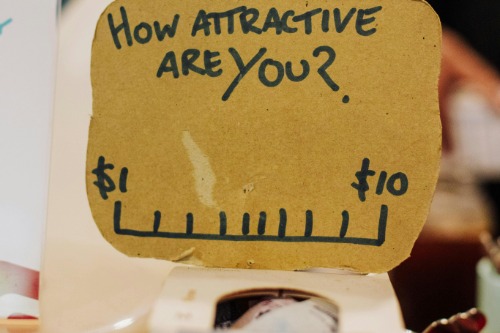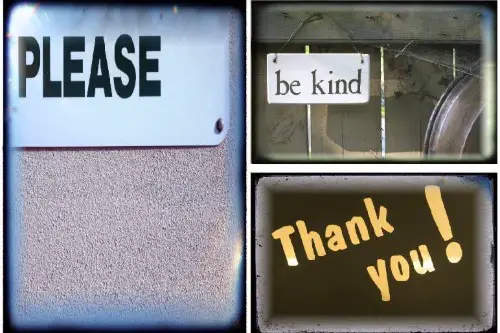1. Tipping

Tipping is a deeply ingrained habit in the U.S., seen as a way to show appreciation for good service. But in countries like Japan or South Korea, tipping can be confusing or even insulting. Service workers are expected to do their job well without extra incentives. Offering money can imply that they’re not being fairly paid or that you’re trying to buy special treatment.
In those places, pride in work matters more than gratuities. A tip can create awkwardness or make someone feel indebted. What Americans view as generosity might come off as patronizing, according to Jessica Dickler from CNBC. It’s one of the most common travel faux pas for Americans abroad.
2. Smiling at Strangers

In the U.S., flashing a smile at someone you don’t know is just a way to be friendly or seem approachable, according to Olga Khazan from The Atlantic. But in many parts of the world, particularly in places like Russia or Japan, unsolicited smiling can seem insincere or even suspicious. People may wonder if you’re mocking them or hiding something. What’s meant as warm can easily be read as weird.
This cultural difference comes down to how societies interpret emotional expression. In some cultures, people only smile when there’s a genuine reason. So, if you’re grinning on a bus for no clear reason, you might get side-eyes instead of smiles back. Americans often associate constant cheerfulness with good manners, but not everyone agrees.
3. Asking “How Are You?” as a Greeting

Americans love using “How are you?” as a go-to opener, but it’s rarely meant literally. Most of the time, the expected answer is just “good” or “fine,” and the conversation moves on. In countries like Germany or Finland, people might actually answer in detail—because they think you really want to know. When it turns out you don’t, they may find the exchange shallow or rude.
What feels like small talk in the U.S. can feel like a bait-and-switch elsewhere. People may find it odd to be asked about their emotional state without genuine interest. In more reserved cultures, that level of casual intimacy isn’t normal with strangers or acquaintances. So instead of bonding, it can come off as intrusive.
4. Over-Apologizing

Americans often say “sorry” as a reflex, even when they haven’t done anything wrong, according to Jamie Ballard from YouGov. You might bump into someone and hear them say sorry, just to keep things smooth. But in countries like France or Israel, over-apologizing can come across as insecure or even insincere. It might make people wonder what you’re actually guilty of.
In more direct cultures, apologies are reserved for real offenses. Constantly apologizing for minor things dilutes the meaning of the word. It can seem like you’re trying too hard or that you’re not confident in yourself. What feels polite in the U.S. might feel weak or evasive elsewhere.
5. Talking to Service Workers Like Friends

Americans often chat casually with waiters, cashiers, or baristas, thinking it’s friendly. In other countries, this can feel awkward or even condescending. In places like Japan or Germany, a clear line is drawn between personal and professional interactions. Talking too informally can blur that line and make people uncomfortable.
It’s not that people in those cultures are cold—it’s just that they value efficiency and boundaries. Service interactions are expected to be courteous but impersonal. American friendliness might seem like you’re overstepping, even if your intentions are good. Sometimes polite silence is the preferred form of respect.
6. Constantly Saying “Please” and “Thank You”

In the U.S., these words are used liberally as signs of good manners. Parents drill them into kids from a young age, and using them is considered essential. But in some cultures, like in parts of Scandinavia or China, overusing these phrases can feel excessive or artificial. They believe that respect should be shown through tone and behavior, not repetitive words.
In close relationships or everyday settings, too much formality can feel forced. It might even sound sarcastic if you’re overly polite in a casual situation. While Americans aim to show gratitude, others might prefer simplicity and sincerity. The mismatch can be jarring and lead to misread intentions.
7. Making Eye Contact

In the U.S., steady eye contact signals confidence, honesty, and respect, according to Michael Ruth from EBSCO Research Starters. But in cultures like Korea or Nigeria, prolonged eye contact—especially with elders or authority figures—can be seen as disrespectful. Avoiding eye contact there isn’t rude; it’s deferential. So while Americans may think they’re being polite, others may see it as confrontational.
Cultural norms around eye contact vary widely. What feels open and trustworthy in one place can feel aggressive or inappropriate in another. Understanding who you’re talking to—and where—makes a big difference. Sometimes, less is more when it comes to eye contact.
8. Making Small Talk

Chit-chat about the weather or your weekend is standard in American culture. It’s a way to break the ice and ease into conversations. But in countries like Finland or the Netherlands, small talk can seem unnecessary or even fake. People may prefer to get straight to the point rather than fill space with fluff.
Silence isn’t always awkward in other cultures—it can be respectful. The constant need to fill the air with words is viewed by some as anxiety-driven or shallow. Americans may feel they’re being friendly, but it can seem exhausting to others. Being concise is often more appreciated.
9. Complimenting Strangers

Saying “I love your shirt!” or “Your hair looks amazing!” to someone you’ve just met is typical in the U.S. But in other places, like Germany or Japan, compliments from strangers can feel intrusive or overly familiar. People may question your motives or feel uncomfortable with the attention. It’s not that they don’t like being noticed—they just don’t expect it from someone they don’t know.
Compliments are often reserved for closer relationships in many cultures. They’re given more sparingly and usually mean more when they come. Americans may see it as a confidence boost, but others might see it as a boundary breach. Context really changes how a compliment lands.
10. Inviting People Over Casually

Americans might say, “You should come by sometime!” and think it’s just friendly. But in many cultures, invitations are serious business. In places like India or Egypt, an invite is often followed through with genuine hospitality and planning. A casual, throwaway invite can feel insincere or even rude when nothing comes of it.
This difference creates confusion and disappointment. People may expect details and preparation, not an empty gesture. Americans might just be trying to be polite, but others could take it at face value. Being clear about your intentions helps avoid mixed signals.
11. Talking About Work First

In American culture, it’s normal to ask, “So, what do you do?” early in a conversation. It’s seen as a way to get to know someone. But in many places, especially in Europe, that question can feel too personal or status-driven. People prefer to learn about hobbies, interests, or family before diving into jobs.
It can come off as reducing someone to their profession. While Americans often equate identity with career, others see that as narrow. Building rapport outside of work talk is often more valued. This cultural mismatch can make Americans seem overly focused on success.
12. Over-Enthusiasm

Americans are known for their high-energy greetings, big smiles, and exclamations like “Awesome!” or “Oh my gosh, that’s amazing!” But in many parts of the world, especially in Northern Europe or East Asia, this level of enthusiasm can feel excessive. It might come across as fake or overbearing. People may wonder if you’re exaggerating or trying too hard.
Tone down the energy, and you’ll fit in better in more reserved cultures. Enthusiasm isn’t bad—it’s just that not everyone expresses it so openly. Americans often equate enthusiasm with kindness, but others may value calm and understatement. Matching the vibe goes a long way.
13. Talking Loudly in Public

Americans tend to speak at higher volumes, even in quiet places like trains or cafes. It’s not intentional—it’s just a cultural norm. But in countries like Switzerland or Japan, it can be seen as disruptive or inconsiderate. Quietness in public is a form of respect.
Volume control varies by culture. What feels normal in one place may be jarring in another. Americans might not even notice how loud they’re being. But others might hear every word—and not in a good way.
14. Being Too Direct

Americans often appreciate “straight shooters” who say what they mean. But in cultures like the UK or many parts of Asia, bluntness can be seen as rude or tactless. Politeness often means softening criticism or being indirect. A “no” is rarely just a “no.”
Being too straightforward can shut down conversations or offend unintentionally. Americans may think they’re being honest, but others may hear insensitivity. In more nuanced cultures, reading between the lines is a skill. Subtlety is often seen as more respectful.
15. Saying “You’re Welcome” to Thanks

In the U.S., saying “you’re welcome” after someone says thank you is standard. But in countries like Japan or Thailand, responses tend to be more humble, like “It was nothing.” Saying “you’re welcome” can feel like you’re accepting credit or calling attention to your favor. It may come off as self-important.
Cultural ideas about humility and service vary. In some places, downplaying your role is considered the polite move. Americans think they’re closing the gratitude loop, but others might find it too formal. Adjusting language to match local customs makes interactions smoother.
16. Offering Help Without Being Asked

Americans often jump in to help if someone looks like they’re struggling. While meant to be kind, this can sometimes offend people in countries that value independence or pride. In places like France or China, unsolicited help might imply the person is incapable. They may interpret it as meddling rather than kindness.
Helping is wonderful—but it’s important to read the room. Sometimes people want to figure things out on their own. Americans may feel heroic offering help, but others may feel embarrassed or annoyed. A better approach might be asking first before stepping in.
17. Hugging or Touching During Greetings

Hugs, back pats, and even shoulder squeezes are common greetings in the U.S. But in countries with more formal or touch-averse norms, like South Korea or the UK, this kind of contact can feel invasive. A handshake—or even a nod—is the preferred level of closeness. Going in for a hug might make someone freeze or recoil.
Touch is deeply cultural and tied to personal space. Americans often see physical contact as warm and welcoming. But others may feel their boundaries are being crossed. When in doubt, let others lead the greeting style.


